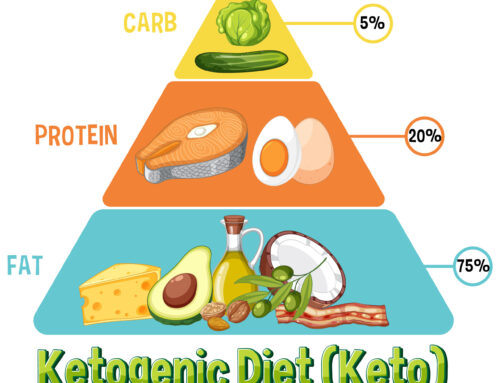written by Riya Laheja, The Start Small Movement – Helping Small Businesses
Ayurveda, or Ayurvedic Medicine, is a core tool we use to help people heal here at our Integrative Health Clinic in New Jersey. For many new patients at our practice it’s totally new to them and they have a lot of questions.
Some common questions that we get from patients first learning about Ayurveda are:
- What is Ayurveda? Does it work?
- Can Ayurveda cure Irritable Bowel Syndrome (IBS)? And other gastrointestinal problems?
- Can Ayurveda help with ADHD?
- How can Ayurveda boost my focus and reduce my mental and physical fatigue?
Let’s begin with what Ayurveda is and how it can work for you.
What is Ayurveda?
First, what is Ayurveda and how does it help you do all of these wonderful things for your body and mind?
The Fundamental Principles
It is based upon a 5,000 year old science which originated in India; one of the concepts is that the whole universe is made up of 5 elements: earth, water, fire, air, and ether (space). These 5 elements come together to form 3 doshas, and these 3 doshas are known as Vata, Pitta, and Kapha.
Every individual has some amount of each of these 3 doshas, but the question of how much determines their mental and physical characteristics. This variation explains why different people respond differently to the same foods, environments, and lifestyles—a concept modern medicine is only beginning to acknowledge through personalized medicine approaches.
Ayurveda is personalized medicine
Ayurveda takes into account how unique every individual is and how they each require different types of treatment which includes tailored diets, lifestyle changes, herbal remedies, and various mind-body therapies. Ayurveda aims to go above and beyond just treating the symptoms of each patient, but aims to help prevent illness through maintaining overall balance of the body and mind and one of its core tenets is to address the root causes of disease.
Ayurvedic treatments & practices
Ayurveda includes a wide variety of practices & therapies to address the holistic health of an individual.
Yoga, meditation, and pranayama are integral parts of Ayurveda which help your bodies in wondrous ways. First, let’s delve into the details of Meditation and what it entails!
Meditation
Meditation is a technique that focuses on improving concentration through utilizing breath, a mantra (a saying), or a specific object. The purpose of meditation is to quiet the mind, reduce mental load, and to promote a deep relaxation and awareness of oneself.
Meditating regularly can help reduce anxiety, improve mental health and clarity, and emotional well-being.
Practicing meditation daily also helps with ADHD through having improved focus and attention, regulating emotional outbursts and impulsivity, and reducing stress.
Meditation also enhances and strengthens the connections between your mind and body.
This coupled with the fact that meditation helps to reduce anxiety helps reduce symptoms of IBS and reduces gastrointestinal discomfort, improving digestive function in turn in order to help alleviate bloating and uncomfortable abdominal pain.
When it comes to fatigue, meditation often increases energy levels, improves the quality of sleep, and reduces mental chatter, resulting in a sense of calmness which can help feel more alert throughout the day12.
Pranayama (breathwork)
Pranayama, also known as ayurvedic breathwork, has many benefits when it comes to physical, mental, and emotional aspects of the body, creating a strong bond between the mind and breath.
Some common pranayama techniques include:
- Nadi Shodhana (Alternate Nostril Breathing) which balances the nervous system and calms the mind,
- Kapalabhati (Skull Shining Breath) which detoxifies the body and energizes the mind,
- Bhramari (Bee Breath) which reduces stress and anxiety, and calms the nervous system,
- Ujjayi (Victorious Breath) which increases oxygen intake and promotes relaxation,
- Sheetali (Cooling Breath) which cools the body and mind, reducing stress and anger1.
A good time to practice these breathing techniques are in the morning, during breaks, and before going to sleep.
These techniques help enhance concentration and focus, reduce stress, and regulate emotions through engaging the vagus nerve and activating the parasympathetic nervous system to create a state of relaxation and reduce cortisol levels. They also help reduce mental clutter, improve memory and cognitive function through increasing the amount of oxygen supplied to the brain in order to improve neural activity and grow new neural connections. Pranayama also helps to increase energy levels of an individual throughout the day by enlivening the mind and body through increased oxygenation and improved circulation and flow of blood1.
Pranayama can help improve focus and concentration, and reduces stress in individuals, aiding with being able to manage and reduce ADHD symptoms. Reducing high levels of anxiety also helps mitigate IBS symptoms. Certain pranayama techniques such as Kapalabhati also help stimulate digestive organs and increased relaxation both help improve digestive function.
Pranayama techniques such as Kapalabhati and Ujjayi also reduce fatigue by improving energy levels. Many people report that sleep patterns also improve to help individuals feel more rested when they wake up and function more optimally during the day13.
Yoga
Yoga is a practice that aims to help align the body, mind, and spirit, helping to promote overall health and well being. A big part of yoga is Asanas. Asanas are physical exercises and poses that help to improve flexibility, strength, and balance, helping improve posture, energy levels, and decrease stress overall. They help do this by stretching and toning various muscle groups, opening stiffness in joints, and massaging internal organs.
Yoga is not only beneficial for physical improvements, but also improves mindset and can help to focus and calm your mind. Studies show that Yoga can help people with ADHD overcome losing focus so often. It helps them stay grounded and in the moment rather than becoming distracted so easily 3. This helps people with ADHD manage their energy levels better and control their impulses.
Additional studies show how yoga can help with becoming less fatigue throughout the day. It is proven that people who are not exposed to as much exercise feel more fatigued (caused by an extreme reaction to post-external Malaise)5. Yoga is a very effective form of exercise as it allows for some exposure to exercise while being not too intense for the body to endure.
Panchakarma
Another important practice in Ayurveda which sets it apart from modern medicine is called Panchakarma, also known as detoxification; this is a series of cleansing therapies that aims to remove toxins from the body.
Ayurveda also includes nutrition and herbal medicines. It is a comprehensive system for health.
Ayurveda: The Original Functional Medicine
Ayurveda clearly has many benefits to help your body, mind, and spirit feel refreshed and in the best condition it can possibly be in. It truly is the “original” “og” Functional Medicine, which many patients come in seeking, and then realize that it is simply a bridge to Ayurvedic Medicine, which is even more focused on the root cause of health issues than typical Functional Medicine.
Schedule your free call with Dr. V
For more insight on how to combine ancient wisdom and modern medicine to optimize your health, learn more here on Dr. V’s website and schedule a complimentary discovery call with her team to start your Functional Ayurveda MD™ journey today.
Additional Resources
Books
- “Light on Yoga” by B.K.S. Iyengar
- “The Heart of Yoga: Developing a Personal Practice” by T.K.V. Desikachar
- “Ayurveda: The Science of Self-Healing” by Dr. Vasant Lad
- The Complete Book of Ayurvedic Home Remedies” by Dr. Vasant Lad
References
- Pranayama: Enhancing Student Mental Sharpness
- Mayo Clinic
- Can yoga help people with ADHD?
- Yoga For IBS: The 7 Best Poses & Other Practices For The Holistic Management Of IBS
- Integrative Therapies for CFS and Fibromyalgia
- 5 Yoga Poses for Irritable Bowel Syndrome (IBS)
- Yoga for Chronic Fatigue Syndrome: 10 Easy Yoga Poses for Energy Restoration
- 12 Benefits of Yoga That Are Supported by Science
- The Best Meditation Strategies for ADHD
- Can Meditation Help With ADHD?
- Meditation for IBS: Harnessing the Gut-Mind Connection
- The Transformative Power of Mindfulness Meditation for IBS
- Physiology of long pranayamic breathing: Neural respiratory elements may provide a mechanism that explains how slow deep breathing shifts the autonomic nervous system
Tell us what you think.
Dr. Minal Vazirani

CONTACT INFORMATION
844.543.2537 (1.844.5HEALER)
info@ihwa-nj.com
OFFICE LOCATIONS
112 Town Center Drive Suite 201
Warren, NJ 07059
200 South Orange Ave Suite 107
Livingston, NJ 07039
Dr. V. is a warm and compassionate individual. She is well versed in several forms of medicine. That is why I like her because she can see things from different angles. She is very wise for her years.
Always Positive!! Integrative Medicine has saved me! Thank You Dr. Vazirani!!
Dr. Vazirani is very pleasant, knowledgeable and always has the interest of the patient. I am very happy to be under her care and would recommend her to all my friends
Are you looking for a Triple Board Certified Doctor who gets Integrative, Functional, & Ayurvedic Medicine in NJ?
Message us or complete our intake form to get started with Dr. Vazirani.



